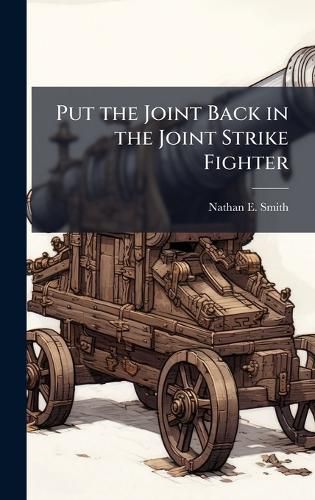Readings Newsletter
Become a Readings Member to make your shopping experience even easier.
Sign in or sign up for free!
You’re not far away from qualifying for FREE standard shipping within Australia
You’ve qualified for FREE standard shipping within Australia
The cart is loading…






Short Takeoff Vertical Land (STOVL) technology existed for high-performance aircraft since the late 1960s, but the United States Air Force (USAF) elected not to acquire a STOVL fighter despite the United States Marine Corp (USMC) and coalition partners such as Great Britain and Italy investing in such fighters. The former Chief of Staff of the Air Force (CSAF) stated the USAF is interested in acquiring a STOVL variant (designated as the F-35B) of the Joint Strike Fighter (JSF) in addition to the F-35A, the USAF JSF variant.1 To date, the current CSAF has not reversed this decision but this may be due to the absence of a study that clearly states the advantages and disadvantages of the F-35B for the USAF. The USAF still needs a research project to examine this subject and clearly state the pros and cons.
This work has been selected by scholars as being culturally important, and is part of the knowledge base of civilization as we know it. This work was reproduced from the original artifact, and remains as true to the original work as possible. Therefore, you will see the original copyright references, library stamps (as most of these works have been housed in our most important libraries around the world), and other notations in the work.
This work is in the public domain in the United States of America, and possibly other nations. Within the United States, you may freely copy and distribute this work, as no entity (individual or corporate) has a copyright on the body of the work.
As a reproduction of a historical artifact, this work may contain missing or blurred pages, poor pictures, errant marks, etc. Scholars believe, and we concur, that this work is important enough to be preserved, reproduced, and made generally available to the public. We appreciate your support of the preservation process, and thank you for being an important part of keeping this knowledge alive and relevant.
$9.00 standard shipping within Australia
FREE standard shipping within Australia for orders over $100.00
Express & International shipping calculated at checkout
Stock availability can be subject to change without notice. We recommend calling the shop or contacting our online team to check availability of low stock items. Please see our Shopping Online page for more details.
Short Takeoff Vertical Land (STOVL) technology existed for high-performance aircraft since the late 1960s, but the United States Air Force (USAF) elected not to acquire a STOVL fighter despite the United States Marine Corp (USMC) and coalition partners such as Great Britain and Italy investing in such fighters. The former Chief of Staff of the Air Force (CSAF) stated the USAF is interested in acquiring a STOVL variant (designated as the F-35B) of the Joint Strike Fighter (JSF) in addition to the F-35A, the USAF JSF variant.1 To date, the current CSAF has not reversed this decision but this may be due to the absence of a study that clearly states the advantages and disadvantages of the F-35B for the USAF. The USAF still needs a research project to examine this subject and clearly state the pros and cons.
This work has been selected by scholars as being culturally important, and is part of the knowledge base of civilization as we know it. This work was reproduced from the original artifact, and remains as true to the original work as possible. Therefore, you will see the original copyright references, library stamps (as most of these works have been housed in our most important libraries around the world), and other notations in the work.
This work is in the public domain in the United States of America, and possibly other nations. Within the United States, you may freely copy and distribute this work, as no entity (individual or corporate) has a copyright on the body of the work.
As a reproduction of a historical artifact, this work may contain missing or blurred pages, poor pictures, errant marks, etc. Scholars believe, and we concur, that this work is important enough to be preserved, reproduced, and made generally available to the public. We appreciate your support of the preservation process, and thank you for being an important part of keeping this knowledge alive and relevant.